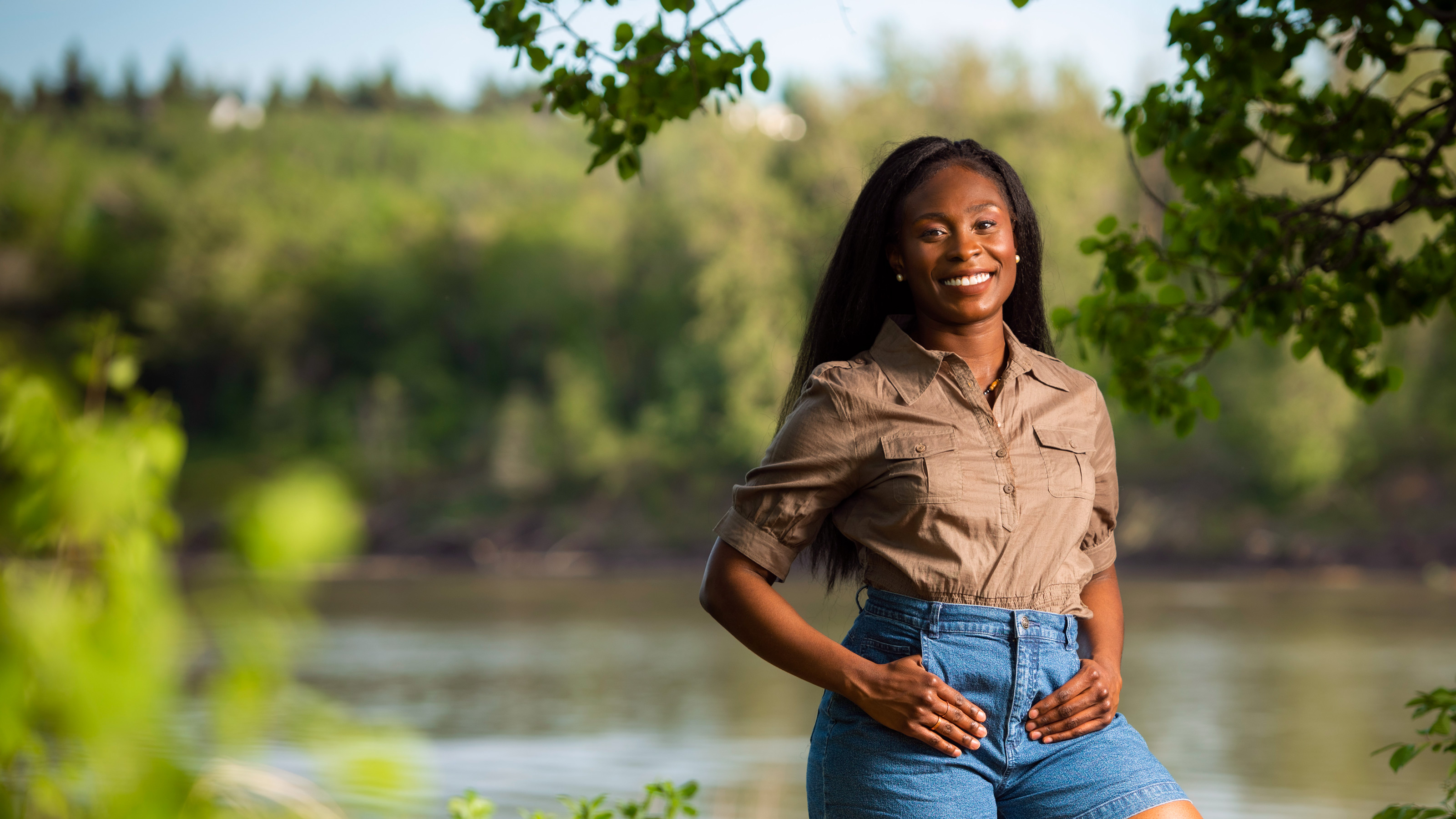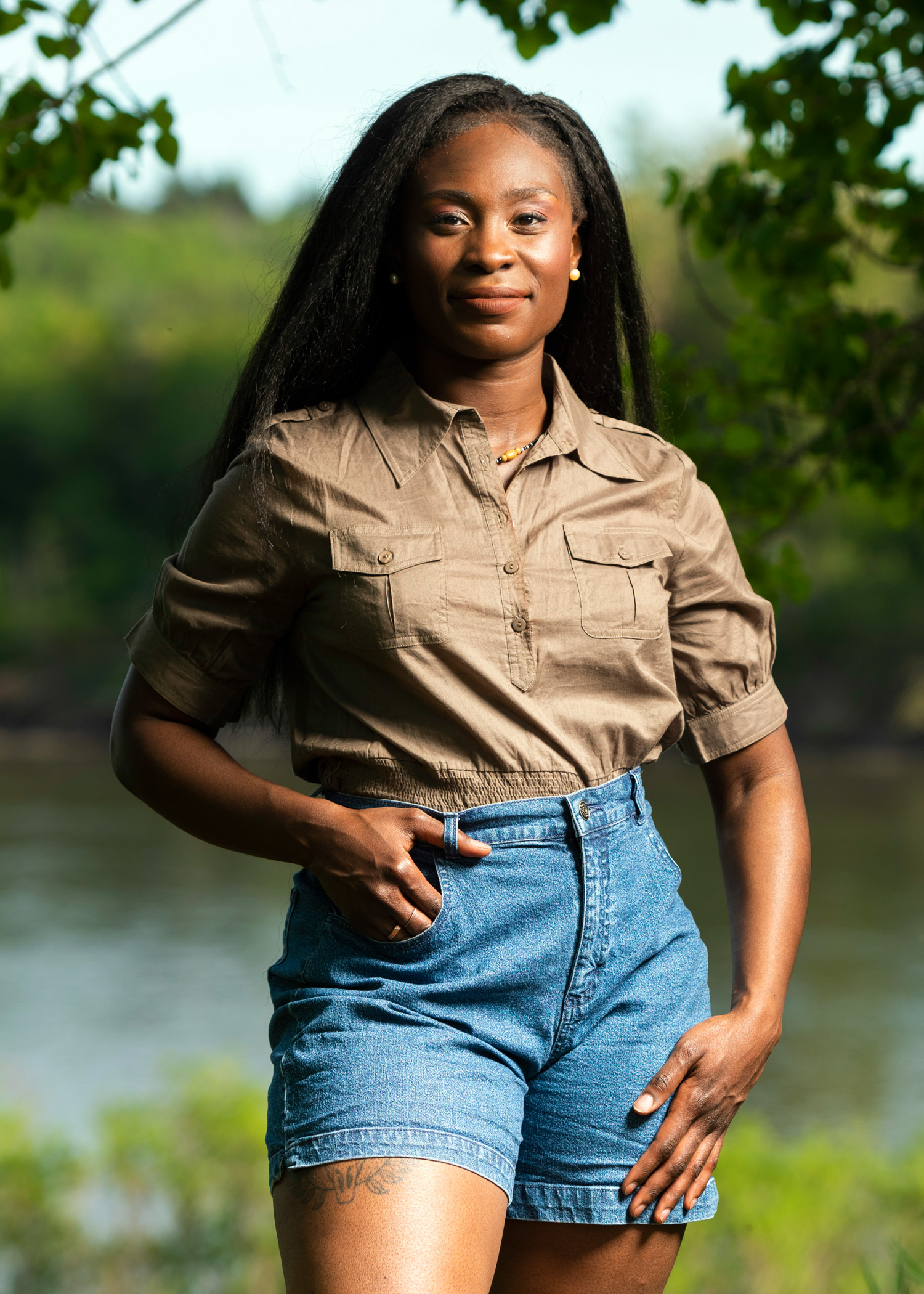For Evelyn Asiedu, graduate school was not just about finding her path as a scientist but also as an activist against anti-Black racism.
Asiedu, who will soon graduate with a PhD from the Faculty of Medicine & Dentistry, didn’t talk about her experience with racism during her first few years at the University of Alberta, even though it was in her face from the beginning. In the first few days after she arrived in Edmonton, someone shouted a racial slur at her from the open window of a passing car.
“It was a shocking racist experience, and it took me aback,” Asiedu said. “But I bottled it up and kept my head down. I didn’t have many Black peers in grad school, so who do you talk to?”
When George Floyd died at the hands of police and the Black Lives Matter movement took off, Asiedu started writing—about her experience of overt racism and also about the systemic racism that left her feeling isolated as one of the few Black graduate students on campus. At first she sent her thoughts to friends, who encouraged her to share them more broadly. Her essay was eventually published in Maclean’s magazine in July 2020.
“A graduate student must defend what they do in their research and how they think,” she wrote. “As a Black woman, I have to justify why I am. My actions either reinforce or contradict an idea of who I’m supposed to be.”
This pressure to justify her worth as a Black woman in science academia, and to represent all the other Black people who weren’t in grad school, was exhausting, she wrote.
“People don’t even recognize that’s how they are thinking,” Asiedu said, “But these constant, day-to-day interactions remind me I’m not like everyone else. I can’t just be somebody who fades into the background.”
Data makes a difference
In her article, Asiedu quoted statistics that show just 3.5 per cent of doctoral recipients in American STEM (science, technology, engineering and mathematics) faculties are Black women, and that Black women make up only 1.7 per cent of tenured professor positions, even though they are 6.9 per cent of the national population. She couldn’t cite Canadian statistics, because they aren’t collected here. Statistics Canada has shied away from asking directly about racial identities in the census.
“In Canada we use the census to review who is here, what are the households like, the languages spoken, in order to assess where we’re at as a society and redistribute funds if necessary,” Asiedu said. “But we don’t talk about race because if we did, we’d have to talk about the ugly sides of our history, the clearing of land, the intentional starvation (of Indigenous people), the Sixties Scoop, residential schools, slavery, the cheap labour of Asian Canadians, the turning away of asylum seekers from Punjab.”
Asiedu wrote that the absence of racial information about graduate students and faculty in Canadian universities also “renders the experiences of racialized people untenable and provides no incentive for change.”
True to her roots as a scientist, Asiedu sees data collection as a genuine and rigorous step toward addressing inequality and racism.
“Data is a way for us to start to build that history and come up with a common standard of what the reality is, then identify issues and find a way to move forward,” she said. “Any kind of scientific study works that way—take some observations, make an initial assessment, come up with a question, test your hypothesis, rinse and repeat.”
“Not only is it critical but a very simple way for us to start.”
Starting necessary conversations
Ask Asiedu’s parents about their middle daughter and they say she has always had an inquisitive, questioning nature and been an organizer who brings people together. She worked on the yearbook in her elementary school, got elected to her high school student council and was valedictorian of her graduating class. Asiedu, now 31, doesn’t remember having conversations about race with her parents, but they told her from the time she was young, “Because you’re Black, you will have to work harder; be careful what you say and who you say it to.”
They encouraged her to go into medicine, but Asiedu soon found a passion for environmental science. After an undergrad degree in chemistry at Western University, she headed to the U of A’s Department of Laboratory Medicine and Pathology to study analytical environmental toxicology, focusing on chemicals in oilsands tailings ponds. She is continuing that work now as a post-doctoral research fellow at Environment and Climate Change Canada.

